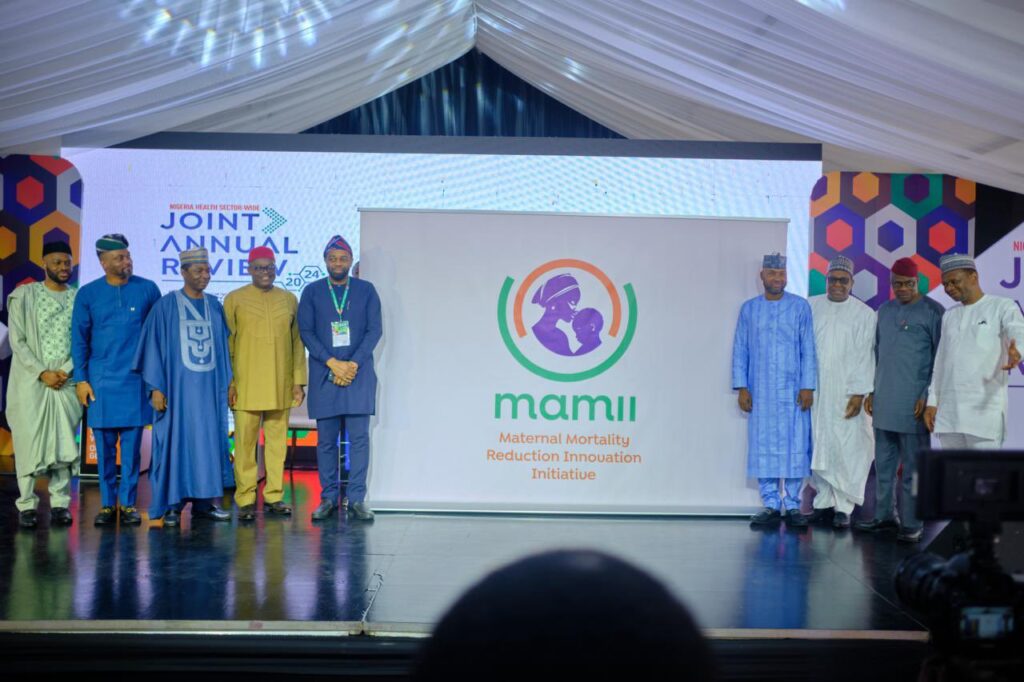To reduce the mortality rate among expecting mothers and unborn children during childbirth, the Coordinating Minister of Health and Social Welfare, Prof. Muhammad Pate, has declared that cesarean sections for women will come with no charges.
This development came shortly after the launch of the Maternal Mortality Reduction Initiative (MAMII) on the second day of the 3-day Health Sector Joint Annual Review (JAR), which commenced on November 6.
The health ministry described the gathering as its first-ever event among stakeholders, held between the government, development partners, civil society, and the private sector.

The Coordinating Minister of Health noted that “No woman should lose her life simply because she can’t afford a C-section.”
MAMII aims to address Nigeria’s critical maternal and neonatal mortality rates—among the highest globally—by prioritising mothers and newborns, focusing on primary health services, and encouraging community involvement, affordability, and access to quality healthcare.
READ ALSO: Ondo Govt disburses N34m to cover medical bills for 46 residents—Health Commissioner
The gathering focused on accountability, collaboration, and strategic planning with the goal of transforming healthcare delivery across Nigeria.
It aligns with the Nigeria Health Sector Strategic Renewal Investment Initiative (NHSRII), which emphasizes accessibility, affordability, and high-quality healthcare for all.
During the launch, HRH Dr. Haliru Yahaya, Emir of Shonga, pledged full commitment, noting, “Traditional institutions and communities are at the heart of health reforms. We’re fully in!”
Oyebanji Filani, Chairman of the Nigeria Health Commissioners Forum, added, “MAMII is a marathon, not a sprint! Health commissioners are ALL IN for implementation.”
ALGON President, Hon. Engr. Bello Lawal, said, “We’re aligning with the Federal Government to ensure grassroots support. Full steam ahead!”
READ ALSO: Okorocha hale, hearty, not dead – Aide
The World Health Organization (WHO) Country Representative noted, “If implemented right, this initiative will deliver. We’re here to support every step of the way!”
Trina Haque, Practice Manager for the World Bank Africa, also pledged full commitment, stating, “MAMII is a game-changer! We’re committed to funding and expertise. Let’s close the gaps!”
Adding to the list of supporters, the Bill & Melinda Gates Foundation announced their commitment: “Exciting progress! We’re dedicated to making maternal and child health a priority.”
On November 3, The New Daily Prime reported that the National Primary Health Care Development Agency (NPHCDA) pledged to prioritize healthcare and partner with stakeholders to achieve universal health coverage, aligning with President Bola Tinubu’s Renewed Hope Agenda.
“For the first time, we are conducting a Joint Annual Review and presenting Nigeria’s State of Health Report, symbolizing our dedication to transparency and measurable progress,” the Minister remarked.
“This is about improving lives and ensuring that our work in healthcare delivers tangible benefits to all Nigerians.”
Out of 41 key performance indicators (KPIs) reviewed, it was revealed that Nigeria is on track to achieve 31 of them, with over 2,600 facilities upgraded to increase access to care across rural and urban communities.
Highlighting the impact of the Primary Healthcare 2.0 (PHC 2.0) reform, Dr. Pate noted achievements in 8,000 primary healthcare centers nationwide with a combined investment of N45 billion in direct state disbursements and over $3 billion mobilized from partners.
Revealing the findings of the Nigeria Demographic and Health Survey in 2023 (NDHS) and the Annual State of Health Report, it noted significant collaborative improvements, including a 16.7% reduction in under-five mortality, a 40% reduction in diarrheal diseases, and a 24% decrease in tuberculosis cases.
READ ALSO: Suspect beheads Okada rider in Kwara
Pledging commitment to combat these issues, the Minister of State for Health and Social Welfare, Dr. Iziaq Salako, emphasized the need to tackle maternal mortality and grant access to quality healthcare services in vulnerable communities.
Permanent Secretary of Health and Social Welfare, Daju Kachollom, underscored the importance of JAR in driving transparent and data-driven evaluation in the health sector.
BY: Helen Okechukwu